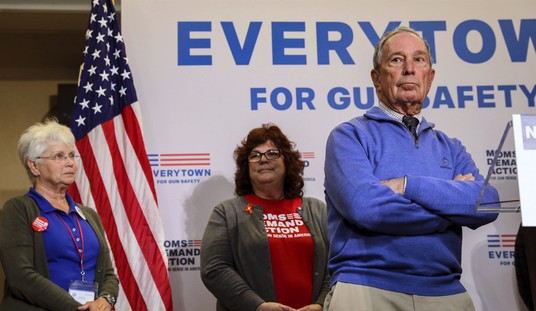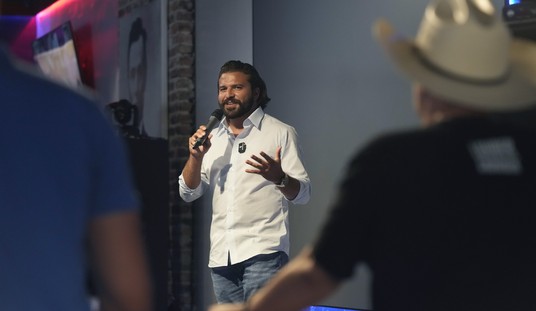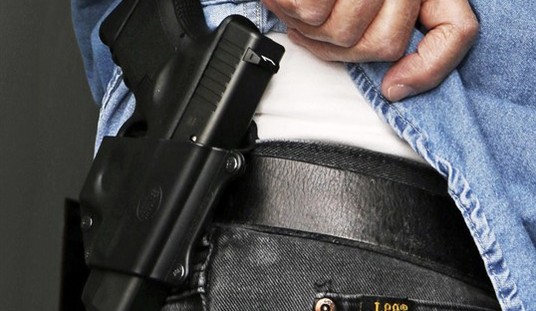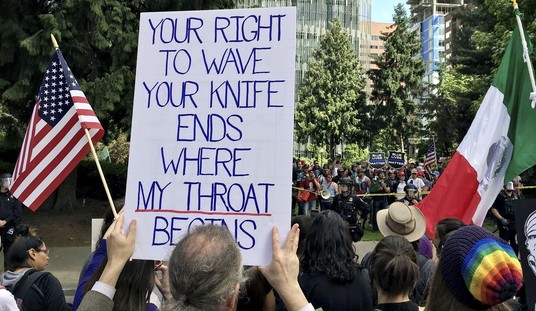We still have a couple of counties in Virginia that have yet to vote on a Second Amendment Sanctuary resolution, but the movement is entering a new phase. Once the votes have been cast and resolutions approved, what happens next?
To help answer that question, Effingham County, Illinois board member David Campbell joins me on today’s Bearing Arms’ Cam & Co.
Effingham County was one of the first in the country to adopt a Second Amendment Sanctuary resolution, and Campbell not only helped to spearhead the push in his county, but has helped dozens of officials and Second Amendment supporters from around the country with their own versions of the resolution.
Campbell tells me that the number one priority for activists in counties that have declared themselves Second Amendment safe havens is to work with local law enforcement to use their discretion not to enforce unconstitutional gun control laws. In Effingham County, for example, the State’s Attorney Bryan Kibler is a big supporter of the idea.
Kibler, though, said he thinks the resolutions send the same message that cities like Chicago send by refusing to cooperate with federal immigration authorities. He said he won’t speculate about how he’d deal with new gun restrictions that haven’t been signed into law but that legislators need to understand, “If you pass it we might not pay attention to it.”
Kibler pointed out that prosecutors already have a lot of discretion and cited an example in which he gave a gun owner a break. He dismissed charges against a man after police found a gun in the car he’d driven from Mississippi, where it is legal to carry guns openly, to Illinois, where it’s not.
“The guy had no (criminal) history and he had it on the side of the front seat of his car in a sack, so I dismissed it,” he said.
Police and prosecutors have a great deal of discretion in terms of making arrests and prosecuting individuals, and we’ve seen plenty of examples of law enforcement choosing not to enforce certain drug laws, even in the state of Virginia, where Portsmouth prosecutor Stephanie Morales announced earlier this year that her office would no longer prosecute low-level marijuana offenses. While most commonwealth’s attorneys in the state haven’t followed suit, several have openly talked about the discretion their offices have in terms of enforcement.
In Richmond, Commonwealth’s Attorney Mike Herring said it was not something his office will be doing.
“I think it’s a complex issue and each locality has to do whatever reflects the will and the tolerance of its community. I’m not there, yet, for the city,” said Herring. “Mostly, because I think it should be the product of a pretty robust conversation involving our office, other city stakeholders, where we’ve really taken a look at the effect of de-penalization or decriminalization.”…
In Henrico County, Commonwealth’s Attorney Shannon Taylor said her office reached an agreement with judges in the county in the summer of 2018 that her office will not be seeking to jail people for simple possession for the first two offenses.
“We have had conversations with our judges about the notion of not incarcerating, not jailing people for first and second possession marijuanas. There’s laws on the books that allow the first time offense to be taken under advisement,” ” said Taylor. “We certainly wanted to follow the public’s opinion that that is not a crime that should require jail time and I support that concept 100-percent.”
If commonwealth’s attorneys are saying that their office has to reflect the will of the community when it comes to drug laws, then their office should reflect the will of the community when it comes to enforcement of any of Governor Ralph Northam’s proposed gun laws as well. In dozens of counties, cities, and towns, the will of the voters is to not infringe on the Second Amendment rights of residents. In Virginia and elsewhere, citizens who’ve come out in support of Second Amendment Sanctuary resolutions need to engage with their sheriffs and prosecutors to encourage them to take a stand and to follow the lead of their colleagues who are already using their discretion when it comes to enforcement of some drug offenses.
David Campbell says it’s also important to use the power of the ballot box. Did your county officials adopt wishy-washy language instead of a robust Second Amendment Sanctuary resolution or ordinance? Yes, you should absolutely vote them out, but in many states its also possible to gather signatures and put a resolution of your own before voters in your city or county.
The most important thing is to keep the momentum going by working with local gun owners and elected officials to ensure that the movement doesn’t fade away once a resolution has been passed. Stay engaged, stay involved, and don’t give up.
Also on today’s program we have an armed citizen who interrupted a burglary at his DeKalb County, Georgia home, a plea bargain for a young hip hop star after his victim refused to testify, and a New Jersey police officer who helped save the life of an 85-year old man at his local gym.
You can always subscribe to the show at Apple Podcasts, Spotify, Stitcher, and the Townhall.com podcast page, as well as Townhall Media at YouTube.
Friday’s show is going to once again feature your emails, questions, and comments, so send them my way at [email protected]. Thanks as always for watching, listening, and spreading the word!









Join the conversation as a VIP Member